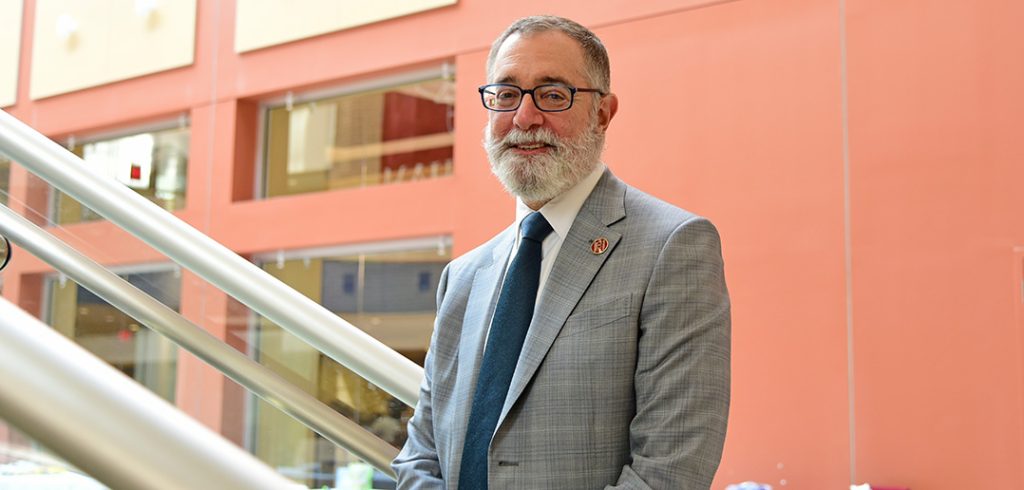He is the founder of two scholarships at the Gabelli School, including one that honors the memory of his brother, Jonathan Gach, GABELLI ’82, who died from cancer in 2018. He also created a research award named for his parents, Harold and Sydelle Gach, and has given to various academic centers and other initiatives at the Gabelli School. He’s a member of the Fordham University President’s Council and a supporter of the Founder’s Undergraduate Scholarship Fund.
Gach’s teaching and philanthropy are informed by his own student experiences but also by values honed during his varied career with Accenture, the global technology and consulting firm he served for 37 years.
Tell me why you created the scholarship in your brother’s memory.
Ours was a working-class family, and our parents didn’t have money for the University, so my brother and I both worked to pay for school. We were not really beneficiaries of campus life because of our working schedules. As much as I loved the Gabelli School, and it set me up for life, I know I missed out on some opportunities, so I want to afford students a chance to have that broader experience.
Why do you support so many different areas?
One of the things I’ve come to appreciate is the school’s integrated objectives. I’m involved in the Responsible Business Center, which is geared toward research on many of the world’s challenges. I started off with the endowed scholarships, but as I started to understand better the importance of research, I’ve started to give in that area as well.
You teach a course called The Ground Floor that’s popular beyond the Gabelli School. What does it cover?
We give the students a business foundation. They get a little bit of accounting, marketing, finance, operations, etc., but also mission and ethics. We have guest speakers who help them with career discernment. We also ask them to develop an idea for a startup that addresses at least one of the U.N.’s sustainable development goals, and almost every year, at least one or two teams try to launch their business. A few have even gone to the Fordham Foundry for help.
What’s your approach to teaching students about ethics in business?
The point I make to students is that very seldom do companies’ ethical issues arise from malevolence. It’s a slippery slope, and I teach them about the warning signs. Management is not infallible. They make mistakes. You can’t just assume, “I’m in the corporate world, I need to toe the line”; you need to have your own point of view. To me, this is deeply ingrained in Fordham and the Jesuit culture, and I think this is a broader lesson for the role of a citizen in a democracy or an employee in a company. Almost every company has whistleblower channels.
What other lessons do you emphasize in your courses?
The importance of maintaining relevancy in the business world. That’s terribly important, because business is changing very fast. Companies used to do five-year strategic plans; now they do one-year strategic sprints. You have to stay relevant in your domain and continue to invest in your ongoing education.
Scholarship gifts support access and affordability, one of the pillars of Fordham’s $350 million fundraising campaign, Cura Personalis | For Every Fordham Student. Learn more about our campaign and make a gift.


